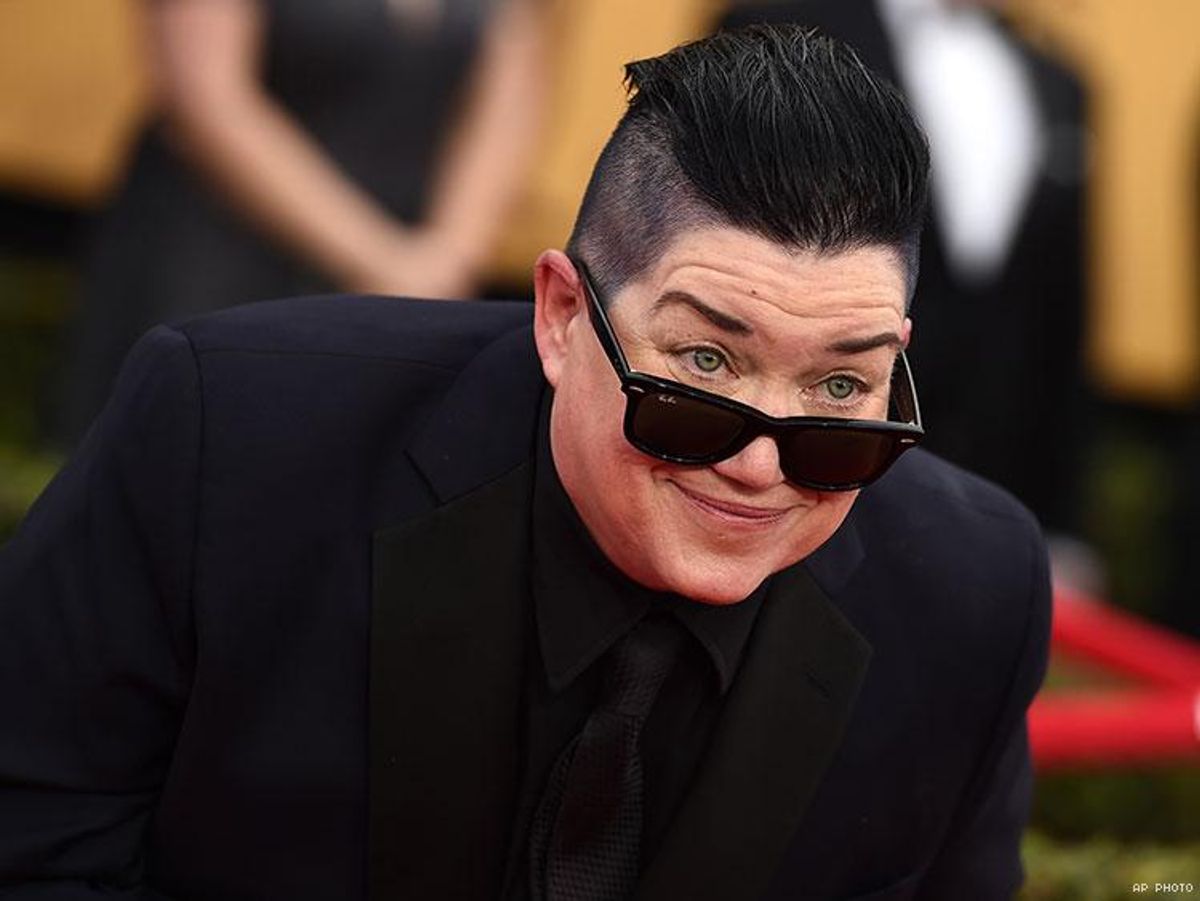Not everyone agrees about acronyms and labels in the LGBT community, but Lea DeLaria, a star of Orange Is the New Black, believes acronyms divide people.
"LGBTQQTY-whatever-LMNOP tends to stress our differences," the actor told Pride Source. The actress went on to say she refuses to endorse the LGBT acronym, instead opting to use queer, because "queer is everybody," she says. The singer and comedian is not alone in thinking this way.
In February, Huffington Post Gay Voices changed the name of its LGBT vertical to Queer Voices. Noah Michelson, the editorial director of Queer Voices, wrote that when the vertical first launched, the word queer was seen as "too controversial, too divisive, and, because of its history as a slur, perhaps just too painful to use."
In an op-ed for The Advocate, Kurt Niece wrote that before the LGBTQ label existed, "there was gay and straight: gay man, gay woman, and straight man and straight woman. Some women preferred lesbian and protested the gay badge, but gay worked for most."
The issue isn't over whether nonstraight, noncisgender people are comfortable using any word, be it gay, queer, or LGBT. It is about using a word that is inclusive of everyone regardless of sexual or gender identity. Queer includes more people across the LGBT spectrum, whereas "gay" is usually specific to men attracted to men. Niece ackowledges this when he says lesbians preferred not to use the "gay" label, but, according to him, "gay worked for most."
"This is the biggest issue we have in the queer community to date and will continue to be the biggest issue until we learn to accept our differences, and that's the issue," said DeLaria told Pride Source. In an op-ed for Out History, Sarah Schulman, a writer, activist, and distinguished professor of the humanities at College of Staten Island, wrote about how "identity categories" within the LGBT community make it difficult to research, document, and analyze the history of queer culture.
Schulman is writing directly about lesbians, but her argument also applies to the term "queer." It is challenging to go back and analyze the history of women who have loved women, Schulman argues, because the meaning of these terms fluctuate over time. Queer was once seen as a slur, and it still is considered a slur for many, but many millennials see it as a liberating word, especially if they don't identify within the categories of gay or lesbian. "Lesbian has had 'divergent meanings,'" writes Schulman. She presents a "radical proposal," as she calls it, which is "that we temporarily forget about who calls themselves a lesbian; why, or why not."
Though Schulman isn't arguing for the use of queer in her op-ed, her sentiment echoes exactly what DeLaria was saying about the need for LGBT or queer (however you choose to identity) people to unite under one term that is both inclusive and empowering. History depends on it, argues the writer and activist:
"I propose that we call this whatever we want to call it, but that we not let it fall by the wayside, because when those of us creating queer history and culture display a reluctance to go deeper and transcend the artifice of restrictive thinking, the mainstream representations are handed a convenient model of hesitant obscuration."
There's a history of groups reclaiming slurs as a form of empowerment in the LGBT community. Maricon Collective, a group of four queer Los Angeles Chicano DJs and artists, used the Spanish gay slur "maricon" in their name as a form of liberation against the bullies or family members who hurled the word against them when they were growing up. Rudy Bleu, a DJ in the group, said he first found inspiration to reclaim hurtful words as a young teenager coming up in the punk scene, where he was surrounded by LGBT musicians who embraced the term "queer." People may still find these terms offensive, Bleu said, but he hopes that by bringing a new context to the slur, it "won't sting as much as 'queer' does to people."

















































































Viral post saying Republicans 'have two daddies now' has MAGA hot and bothered